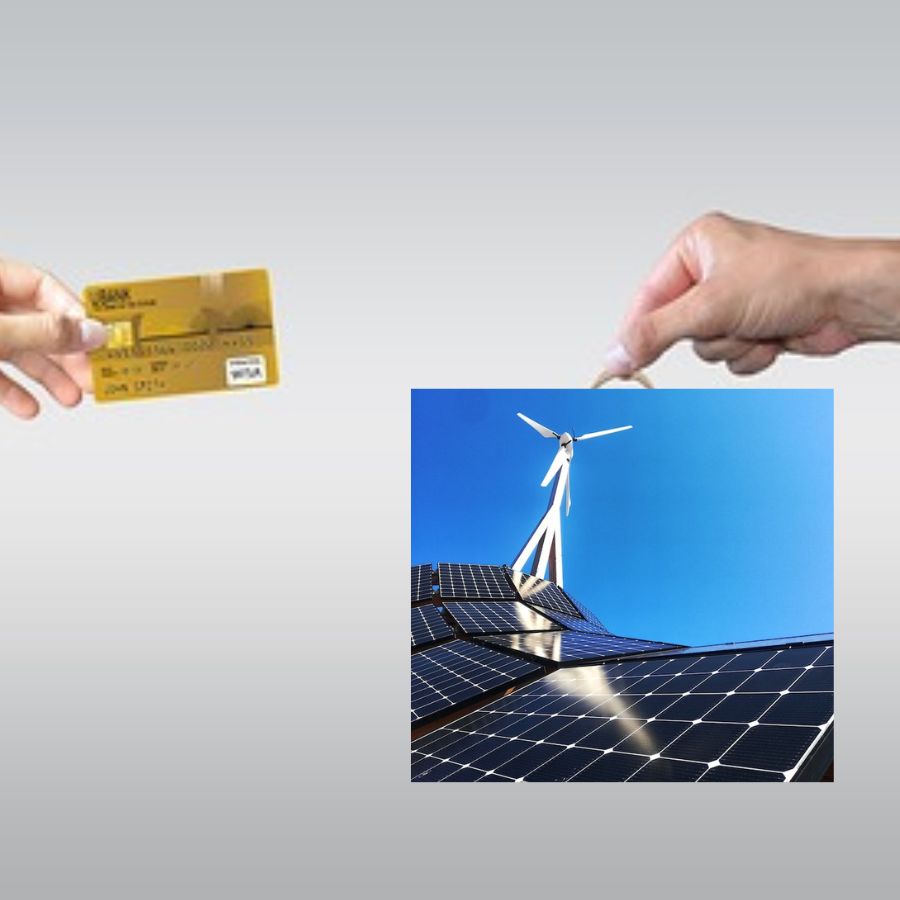Solar energy is an increasingly popular renewable energy source in Canada, providing homeowners a sustainable and cost-effective way to power their homes. However, the upfront cost of installing solar panels can be a significant barrier for many homeowners. This is where solar financing comes into play, offering various financing options to make it easier for homeowners to invest in renewable energy and energy efficiency projects.
Financing options for solar projects in Canada include personal loans, equity lines of credit, and property-assessed clean energy (PACE) programs. Many solar companies also offer solar panel financing programs, providing eligible energy-efficient products and fixed interest rates.
This article aims to be a comprehensive resource for homeowners who want to learn more about solar panels financing and finance solar panels, energy efficiency upgrades, and clean energy projects. Whether you are a new owner, an existing property owner, or interested in solar energy homes, significant resources are available to help you find the financing program that best suits your needs.
Types of Solar Financing

When financing your solar system, there are a few options to consider. This section will discuss the most common types of solar panels financing: cash purchases, loans and financing plans, and leases and power purchase agreements (PPAs).
Cash Purchases
The most straightforward way to finance a solar system is to purchase cash. This means paying for the entire system upfront, which allows you to avoid paying any interest charges or fees associated with loans or leases. In addition, cash purchases are often the most cost-effective option in the long run, as you will eventually recoup your investment through energy savings.
Loans and Financing Plans
Many homeowners choose to finance their solar systems through loans and financing plans. These include personal loans, equity lines of credit, and home equity loans. Interest rates and loan terms can vary depending on the lender, but some financing options offer fixed interest rates and extended amortization periods to help make payments more manageable. Homeowners can also purchase a Home Equity Line of Credit (HELOC).
Some solar financing programs offer interest-free loans, such as Vancity Community Investment Bank Pace Program in British Columbia and the Property Assessed Clean Energy (PACE) financing program in Nova Scotia. The PACE program allows homeowners to pay for the cost of their solar project over time through their property tax bill, while Vancity’s Own Pace Program provides additional funding for energy efficiency programs alongside solar installations.
Leases and Power Purchase Agreements (PPAs)
Leases and power purchase agreements (PPAs) are other options for financing solar systems. With a lease, the homeowner rents the solar power system from the provider and makes monthly payments, typically for 20-25 years. The provider is responsible for maintaining the system, and the homeowner receives the benefits of reduced electricity bills.
With a PPA, the homeowner agrees to purchase the electricity generated by the solar power system at a fixed rate over a set period. This means the homeowner doesn’t own the solar panels but can benefit from reduced energy costs. PPAs are typically offered by third-party companies that install solar panels and maintain the solar power system.
Both leases and PPAs can be a good option for homeowners who need more upfront capital to make a cash purchase or take out a loan. However, they may provide less long-term savings than owning the solar power system outright.
It’s essential to evaluate the solar financing program and consider the benefits and drawbacks of each before making a decision. A solar energy advisor can help you determine the best financing option for your needs and budget.
The following section will discuss how to evaluate PV financing options to determine which one is right for you.
Evaluating Your Solar Financing Options

When considering solar financing, evaluating each option’s pros and cons and considering various factors before deciding is essential.
Here are some factors to consider when evaluating your PV financing:
Upfront Costs
One of the most important factors is the upfront cost of installing a solar panel system. If you have the funds available, purchasing a system outright may be the best option, as it can provide long-term savings. However, financing opportunities like loans and leases may be a more viable option if you do not have the upfront funds available.
Ownership and Maintenance
With a cash purchase, you own the solar system outright and are responsible for its maintenance. The solar company maintains the system with leases and power purchase agreements (PPAs). Consider whether you want ownership and control over the design or prefer someone else to handle maintenance and repairs.
Tax Incentives and Rebates
Tax incentives and rebates can significantly reduce the cost of installing a solar panel system. Consider the incentives and rebates available in your area and how they might impact your financing decision.
Length of Contract or Loan Term
Financing options like leases and PPAs typically come with long-term contracts, while loans can have shorter terms. Consider the length of the financing agreement and whether it aligns with your long-term goals.
Energy Savings and Return on Investment
A solar panel system can provide significant energy savings and investment returns over time. Consider the estimated savings and payback period when evaluating financing opportunities.
Here Are Some Pros and Cons of the Three Main PV Financing Options

Cash Purchases
The main advantage of a cash purchase is that you own the system outright and can see the most significant long-term savings. However, the upfront cost can be a barrier for some homeowners.
Loans and Financing Plans
Loans can provide an affordable way to finance a solar panel system over time, with fixed interest rates and predictable monthly payments. However, you will be responsible for the maintenance and upkeep of the system.
Leases and Power Purchase Agreements (PPAs)
Leases and PPAs can provide a way to go solar with little or no upfront costs and minimal maintenance responsibilities. However, you will not own the system and may not be eligible for tax incentives and rebates. Additionally, long-term contracts can limit flexibility.
In evaluating your PV financing, it’s essential to consider your financial situation, long-term goals, and overall energy usage. A qualified energy advisor can help you evaluate your options and make an informed decision that aligns with your needs and goals.
Frequently Asked Questions
What Is the $40000 Interest-Free Loan Canada Energy?
The $40,000 interest-free loan Canada Energy is a financing option available to Canadian homeowners interested in making energy-efficient home upgrades. This program is designed to encourage the adoption of renewable energy and energy-efficient technologies by offering homeowners an interest-free loan with a fixed interest rate for up to 10 years.
One can use this loan to finance various renewable energy projects, such as solar panel installations, or energy efficiency upgrades, such as insulation, window upgrades, and energy-efficient heating and cooling systems. The loan is available to all eligible homeowners across Canada, and the repayment period and interest rate remain fixed for the entire loan term.
What Happens if I Sell My Home Before the Solar System Is Paid Off?
A few options are available if you sell your home before the solar power system is paid off. First, you could transfer the financing to the new owner if you financed the solar power system through a loan or lease. Alternatively, you could pay off the remaining balance of the solar power system before selling the home. In either case, the solar power system could increase the value of your home and make it more attractive to potential buyers.


Leave a Reply